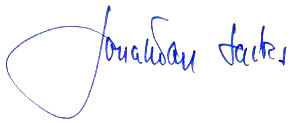Jonathan Sacks – A Test of Character
There have been times when one passage in today’s parsha was for me little less than life-saving. No leadership position is easy. Leading Jews is harder still. And spiritual leadership can be hardest of them all. Leaders have a public face that is usually calm, upbeat, optimistic and relaxed. But behind the façade we can all experience storms of emotion as we realise how deep are the divisions between people, how intractable are some of the problems, and how thin the ice on which we stand. Perhaps we all experience such moments at some point in our lives, when we know where we are and where we want to be, but simply cannot see a route from here to there. That is the prelude to despair.
Whenever I felt that way I would turn to the searing moment in our parsha when Moses reached his lowest ebb. The precipitating cause was seemingly slight. The people were engaged in their favourite activity: complaining about the food. With self-deceptive nostalgia, they spoke about the fish they ate in Egypt, and the cucumbers, melons, leeks, onions and garlic. Gone is their memory of slavery. All they can recall is the cuisine. At this, understandably, God was very angry (Num. 11:10). But Moses was more than angry. He suffered a complete emotional breakdown. He said this to God:
“Why have You brought this evil on Your servant? Why have I failed to find favour in Your eyes, that You have placed the burden of this whole people on me? Did I conceive this whole people? Did I give birth to it, that You should say to me, Carry it in your lap as a nurse carries a baby? … Where can I find meat to give to this whole people when they cry to me saying, ‘Give us meat to eat’? I cannot carry this whole people on my own. It is too heavy for me. If this is what You are doing to me, then, if I have found favour in Your eyes, kill me now, and let me not look upon this my evil.” (Num. 11:11-15).
This for me is the benchmark of despair. Whenever I felt unable to carry on, I would read this passage and think, “If I haven’t yet reached this point, I’m OK.” Somehow the knowledge that the greatest Jewish leader of all time had experienced this depth of darkness was empowering. It said that the feeling of failure does not necessarily mean that you have failed. All it means is that you have not yet succeeded. Still less does it mean that you are a failure. To the contrary, failure comes to those who take risks; and the willingness to take risks is absolutely necessary if you seek, in however small a way, to change the world for the better.
What is striking about Tanakh is the way it documents these dark nights of the soul in the lives of some of the greatest heroes of the spirit. We recall the words of King David: “My God, my God, why have you forsaken me?” (Ps. 22:2). Many of the most powerful psalms come from this same emotional territory. “From the depths I cry to You” (Ps. 130:1). “Save me, God, for the waters have reached my neck.” (Ps. 69:2). “I am a helpless man abandoned among the dead … You have laid me in the lowest pit, in the dark, in the depths” (Ps. 88:5-7).
Nor was Moses alone in wanting to die. Three other prophets expressed the same wish.1 One was Elijah. Having achieved his greatest victory – his triumph over the prophets of Baal in the confrontation at Mount Carmel – he received a message from Queen Jezebel that she would find and kill him. At this, “He came to a juniper tree, sat down under it and prayed that he might die. ‘It is enough, Lord,’ he said. ‘Take my life; I am no better than my ancestors’” (1 Kings 19:4).
Another was Jeremiah. People don’t like the bearer of bad news, and that – more agonisingly than for anyone else – was Jeremiah’s role in the last days of the First Temple. He was convinced that resistance to the Babylonians would end in disaster, and warned a succession of kings and politicians that it would be so. Meanwhile false prophets were saying the opposite, assuring the people that there would be “peace, peace,” when there was no peace (Jer. 6:14, 8:11). The result was that Jeremiah found himself reviled, abused, publicly punished and shamed, and at times in danger of his life. In an extraordinary passage he complained: “Lord, You deceived me and I was deceived; You overpowered me and prevailed. I am ridiculed daily, every one mocks me … Cursed be the day I was born … Why did I ever leave the womb to see trouble and sorrow and end my days in shame?” (Jer. 20:7-18).
The fourth was Jonah, ironically after the success of his mission to Nineveh. God had told him to tell the people that in forty days Nineveh would be destroyed. He did so. The people heard the message, took it to heart and repented. God therefore revoked his decree and spared the city and its inhabitants. Far from being pleased, Jonah bitterly reproached God. I knew this would happen, he says. The text does not make it clear whether Jonah was angry that God had spared Israel’s enemies, or believed that forgiveness is incompatible with justice, or simply felt that he had been made to look a fool. He had warned that in forty days the city would be destroyed, and it wasn’t. Whatever the specific ground of his complaint, he prayed to die: “Now Lord, take my life, for it is better for me to die than to live” (Jonah 4:3).
What is Tanakh telling us in these stories? That Jewish faith is not a recipe for blandness or bliss. It is not a guarantee that you will be spared heartache and pain. It is not what the Stoics sought, apatheia, a life undisturbed by passion. Nor is it a path to nirvana, stilling the fires of feeling by extinguishing the self. All these things have a beauty of their own, and their counterparts can be found in the more mystical strands of Judaism. But they are a world apart from the heroes and heroines of Tanakh.
Why so? Because Judaism is a faith for those who seek to change the world. That is one of the most unusual phenomena in the history of humanity. Most religions are about accepting the world the way it is. Judaism is a protest against the world that is in the name of the world that ought to be. To be a Jew is to seek to make a difference, to change lives for the better, to heal some of the scars of our fractured world. But people don’t like change. That’s why Moses, David, Elijah and Jeremiah found life so hard.
Moses’ mission was to help the Israelites create a society that would be the opposite of Egypt, that would liberate instead of oppress, that would dignify, not enslave. That is why the people responded with absurd memories of Egypt – the fish, the cucumbers and the rest. Moses discovered it was easy to take the Israelites out of Egypt but hard to take Egypt out of the Israelites.
The same with Elijah as he sought to make the people give up their pursuit of everyone else’s gods except their own. (Something similar is true today: there are places where you will find more Jewish Buddhists than Jewish Jews.) So it was with David as he tried to turn a loose confederation of tribes into a united nation. And so with Jeremiah when he sought to introduce honesty into politics, even if it meant telling people the bad news as well as the good. Try and change people when you see them on the road to self-defeat and they can break your heart. They get angry; they try to shoot the messenger; they blame you for disturbing their sleep. But to be a Jew is to be a contrarian, to go against the flow.
What is really happening in these episodes is a test of character.

1 So of course did Job, but Job was not a prophet, nor according to many commentators was he even Jewish. The book of Job is about another subject altogether, namely, Why do bad things happen to good people? That is a question about God, not about humanity.









